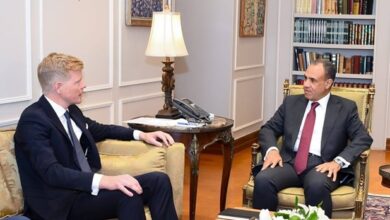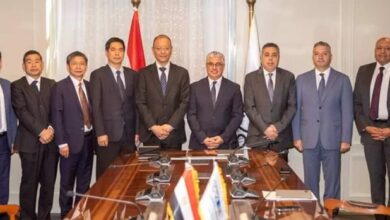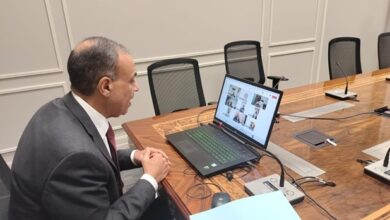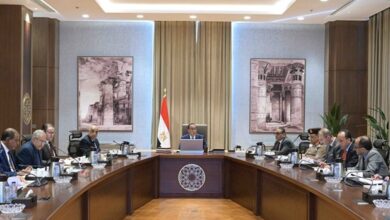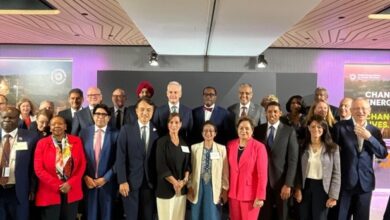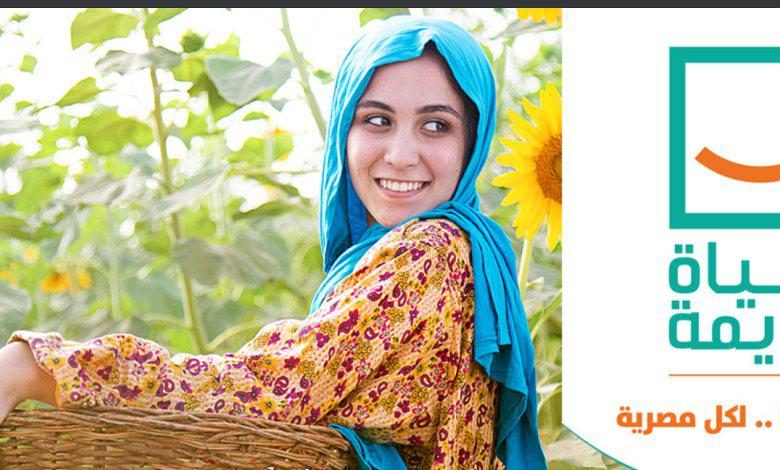
This national initiative was launched by President Abdel Fattah El-Sisi, President of the Arab Republic of Egypt, on the second of January of the year 2019 AD, and it is an initiative that has multiple pillars and is integrated in its features,This initiative stems from a civilized responsibility and a human dimension before anything else,It is far from being an initiative aimed at improving the living conditions and daily life of the Egyptian citizen, because it also aims at immediate and urgent intervention to honor the Egyptian person and preserve his dignity and his right to a decent life, that citizen who bears the bill. Economic reform, which was the best support for the Egyptian state in its battle towards construction and development.
The Egyptian citizen was the true hero who endured all difficult circumstances and stages with impartiality, sincerity and love for the country, Hence, it was necessary to move on a large scale – for the first time – and within the framework of integration and unification of efforts between national state institutions, private sector institutions, civil society and development partners in Egypt. Because what this initiative seeks to provide in terms of an integrated package of services, which includes various aspects of health, social and living, is a huge responsibility that these various parties will share in the honor and commitment to provide to the Egyptian citizen, especially from the societal groups most in need of assistance and a helping hand. So that you can live the better life that you deserve and that you guarantee haya karima, From here came the role of the haya karima Initiative, one of the most important and prominent presidential initiatives to unify all the efforts of the state, civil society and the private sector with the aim of addressing multidimensional poverty and providing a decent life with sustainable development for the neediest group in the governorates of Egypt and to bridge development gaps between centers and villages and their dependencies and invest in human development and enhance the value of Egyptian character.
The idea arose when young volunteers participated in presenting their vision and ideas in the first conference of the “Haya karima” initiative, which was held on the sidelines of the Seventh National Youth Conference on July 30, 2019 AD, and as a result, thehaya karima Foundation was established on October 22, 2019 AD from volunteer youth who provide a unique role model. in volunteer work.
-Initiative goals:
1-To alleviate the fatigue of citizens in the most needy gatherings in the countryside and slums in urban areas.
2-Comprehensive development of the most needy rural communities with the aim of eliminating multidimensional poverty to provide a decent and sustainable life for citizens at the level of the Republic. 3-Upgrading the social, economic and environmental level of the targeted families. 4-Providing job opportunities to claim the independence of citizens and motivate them to improve the standard of living for their families and local communities.
5-Notify the local community of a positive difference in their standard of living.
6-Organizing the ranks of civil society and building confidence in all state institutions.
7-Investing in the development of the Egyptian human being.
8-Bridging development gaps between centers, villages and their dependencies.
9-Revive the values of shared responsibility among all partner agencies to unify development interventions in centers, villages and their dependencies.
The target groups of the initiative:
The most needy families in rural communities.
Elderly.
People of determination
volunteers
Single and divorced women.
orphans and children.
able-bodied youth.
Themes of the initiative work:
Generous housing: raising the efficiency of houses, building roofs, building residential complexes in the villages most in need, and extending water, sewage, gas and electricity connections inside homes.
Infrastructure: micro-projects and activating the role of productive cooperatives in villages.
Medical services: building hospitals and health units, equipping them with equipment, and operating them with medical staff.
Launching medical convoys and providing them with health services such as prosthetic devices (earphones, glasses, wheelchairs, crutches, etc.).
Educational services: Building and raising the efficiency of schools and nurseries, equipping them, and providing educational staff.
Setting up literacy classes.
Economic empowerment: training and employment through medium, small and micro projects.
Industrial and craft complexes and provide job opportunities.Social interventions and human development: social interventions that include building and rehabilitating people and targeting families, children, women, people of determination and the elderly, as well as awareness-raising initiatives.
Providing and distributing subsidized food baskets.
Marriage of orphans, including preparing marital homes and holding collective weddings.
Developing childhood by establishing home nurseries to rationalize mothers’ time in the productive role and clothing children.
Environmental interventions: such as collecting garbage waste and examining ways to recycle it, etc.
The foundations of the initiative:
The concerted efforts of the state with the experience of civil society institutions and the support of local communities in bringing about a qualitative improvement in the lives of the targeted citizens and their communities alike.
The importance of strengthening social protection for all citizens.
Equitable distribution of development gains.
Providing job opportunities to support the independence of citizens and motivate them to improve the standard of living for their families and their local communities.
Stages of the initiative work:
The targeted villages were divided according to the data and surveys of the Central Agency for Public Mobilization and Statistics, in coordination with the relevant ministries and agencies.
The first phase of the initiative:
It includes villages with poverty rates of 70% or more.
The second phase of the initiative:
Villages with poverty rates from 50% to 70%.
The third phase of the initiative:
Villages with poverty rates of less than 50%.The first stage of implementing the initiative:
The first phase targets the number of 377 villages, and they are the villages most in need and most vulnerable to extremism and intellectual terrorism, in which the poverty rate ranges from 70% or more, with a total number of 675 thousand families (three million individuals)11 provinces.
Basic criteria for determining the most needy villages:
1. Poor basic services such as sewage networks and water networks.
2. Low education rate, high density of school classes.
3. The need for intensive health services to meet health care needs.4. Poor conditions of road networks.
5. The high poverty rate of families living in these villages.
It is worth noting that for the first time at the level of public work, more than 20 ministries and authorities and 23 civil society organizations are meeting to implement this most important project ever, with the help of Egyptian youth volunteering for charitable and development work through the Foundation for a Decent Life, to be a beacon to follow in the field of volunteer work.

